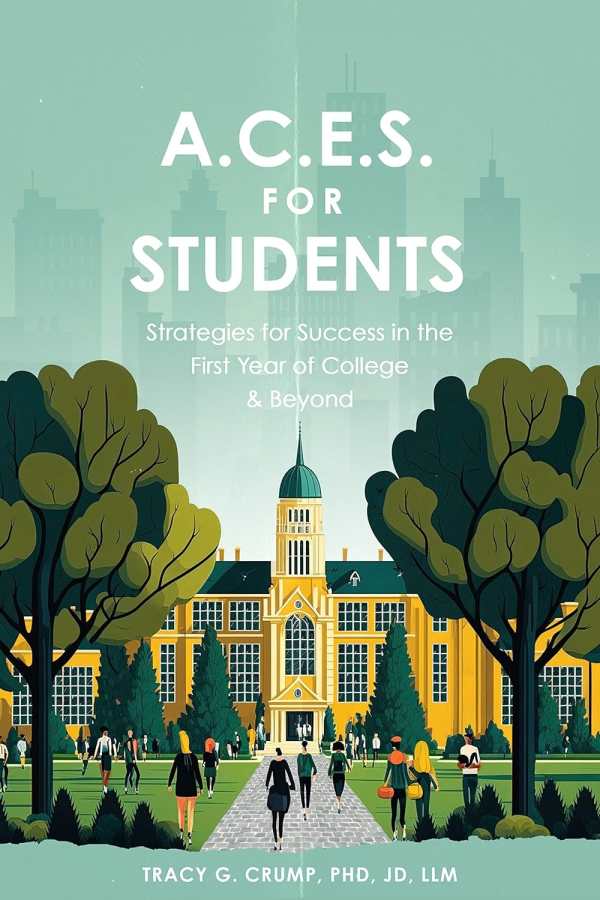A.C.E.S. for Students
Strategies for Success in the First Year of College and Beyond
A comprehensive introduction to life on campus, A.C.E.S. for Students is an informative resource for college-bound youth.
Lawyer, entrepreneur, and longtime student Tracy G. Crump’s compact guide for college students A.C.E.S. for Students includes recommendations for succeeding on and off campus.
The A.C.E.S. framework is an “achievement-driven,” “capacity-informed,” “enthusiasm-oriented,” and “skill-building-focused” method. To give credence to this approach, the book first discusses the importance of emotional intelligence, positive self-identity, and self-motivation for student success. It then delivers practical advice ranging from study skills to time management for facing college’s biggest challenges. Its work concludes with strategies for postgraduation success. Journal prompts for self-reflection and goal setting make this work interactive.
Aiming to be a comprehensive introduction to life on campus, this informative resource addresses a variety of student situations, including those specific to commuter students, transfer students, and international students. There are lists of note-taking methods and instances of financial advice too. And in addition to directly applicable financial coverage, as with its overview of ways to pay for an education (without belaboring the subject of student loans), the book even extends to delineating the differences between checking accounts, savings accounts, and investing, as well as addressing W-2 forms, taxes, and direct deposits. Belying the breadth of its information, its chapters are brief and direct; some are even matched in space by the interactive material that surrounds them. The chapter on mindfulness and self-care, for example, contains three and a half pages of content in comparison to the three and a half pages of journal prompts that follow.
In structure, though, the book is formulaic and repetitive. Each chapter ends with a URL and a QR code linked to Crump’s website, a list of social media handles, and the request “Stop by our social media pages and let us know your three takeaways from this chapter.” Several sections include repetitive phrases that undermine their delivery, as with the chapter on note-taking strategies, which uses “strengths and weaknesses” multiple times. Further, beyond its quite casual and sometimes cliché chapter titles, the language is too often dry and not engaging. And the book is quite short on edifying context, using phrases like “experiential learning,” gesturing to the importance of class structures, and mentioning specialized programs without helpful elaboration.
Direct and backed by experience, the diverse education guide A.C.E.S. for Students includes advice for navigating many potential challenges within college environments.
Reviewed by
Hannah Pearson
Disclosure: This article is not an endorsement, but a review. The publisher of this book provided free copies of the book and paid a small fee to have their book reviewed by a professional reviewer. Foreword Reviews and Clarion Reviews make no guarantee that the publisher will receive a positive review. Foreword Magazine, Inc. is disclosing this in accordance with the Federal Trade Commission’s 16 CFR, Part 255.

